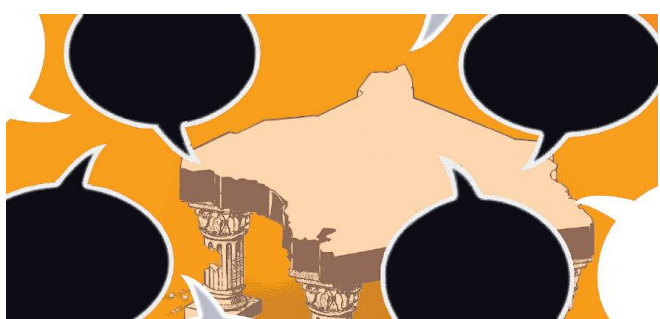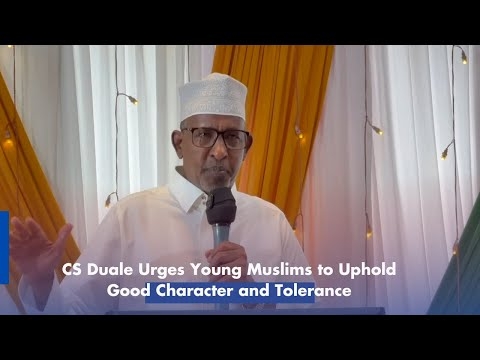

Most of us treat language as invisible, breath passing with little consequence. But words are more like architecture: silent structures shaping perception, trust and possibility.
In business, this truth is evident. A leader who says, “You’re not ready for that yet”, shuts a path. One who asks, “Let’s get you ready for that”, opens it. The work may be the same, but the words set the mindset.
History, too, is shaped by language. Winston Churchill didn’t promise victory; he vowed “blood, toil, tears and sweat.” That brutal honesty became a rallying cry that changed the outcome of the war.
Language also reveals its power in moments of leadership failure. Recently, Kenya’s Interior Cabinet Secretary Kipchumba Murkomen dismissed a BBC Africa Eye documentary exposing child trafficking in Naivasha as “fake,” arguing that none of the people interviewed appeared underage.
Whether or not that technical claim was valid, the message that landed was devastating: victims and survivors heard their government say, in effect, your pain doesn’t count.
Weeks earlier, Murkomen was reported urging police to shoot on sight anyone who stormed police stations, comments later softened as “restating existing law.”
Around the same period, President William Ruto told officers to shoot looters and violent protesters in the leg to incapacitate them.
Each of these statements illustrates the same point: from positions of power, careless words are never casual. They legitimise violence, erode trust and undermine the dignity of those who most need protection.
As a medical doctor, I’ve learned that health is not shaped by medicine alone. Words, even at the scale of a press conference, have real effects on mental wellbeing.
Survivors who are dismissed or disbelieved experience what mental health researchers call secondary victimisation, compounding their trauma. As one study found, up to 90 per cent of sexual assault survivors report feeling re-traumatised by unsupportive responses from authorities, a reaction that predicts depression, anxiety and hopelessness.
Communities exposed to rhetoric that normalises violence lose their psychological safety, the shared belief that one can speak, learn, or heal without fear of reprisal. Research shows that when psychological safety erodes, trust, resilience and social cohesion suffer. In this sense, the words of leaders are not just political; they are public health interventions, for better or for worse.
Some will argue that words are secondary, that what truly matters are policies, resources and institutions. But this misses the point. Words set the frame within which policies are understood, justified, or resisted.
When a minister says a documentary is “fake,” that is not just commentary; it signals to police, officials and even citizens how seriously they should take such abuse claims. When the President tells police to “shoot them in the leg,” that is language and instruction, symbol and material force at the same time. Words are often the first step in shaping reality, for good or ill.
So what would better leadership language look like? At its simplest, it begins with acknowledgement: “We take these allegations seriously.” It continues with affirmation: “Every victim deserves dignity and protection.” And it ends with clarity: “This government will investigate, hold perpetrators accountable and stand with survivors.” This is exactly what the Nakuru Governor, Susan Kihika got right in her press conference announcing a task force to investigate the allegations. None of these phrases require new budgets or laws, but they create an atmosphere where justice feels possible and well-being is protected.
The same principle applies to the press. Sensational reporting can retraumatise victims; careful storytelling can validate them and build trust. Journalism, too, is never neutral, it is a public health intervention.
Words may be free to speak, but their impact is not. In every moment, you are shaping the mental and emotional structures that others will inhabit, for better or worse.
And as King Solomon once warned: “Woe to the land when its king is a child.” (Ecclesiastes 10:16).
Kenya is not cursed by lack of resources, nor by lack of talent. What curses us is when those entrusted with authority use words to defend their image instead of their people, to excuse violence instead of restrain it, to dismiss victims instead of protect them.
A nation does not collapse only when bridges crack and roads wash away. It collapses when words from the top teach citizens that dignity is optional. That is why language matters. Because when leaders speak carelessly, the ruins begin long before the walls fall.










![[PHOTOS] Elgeyo Marakwet landslide victims arrive in Eldoret for care](/_next/image?url=https%3A%2F%2Fcdn.radioafrica.digital%2Fimage%2F2025%2F11%2F425460d9-7ff1-4975-8a1f-cd0aaefb7812.jpg&w=3840&q=100)

